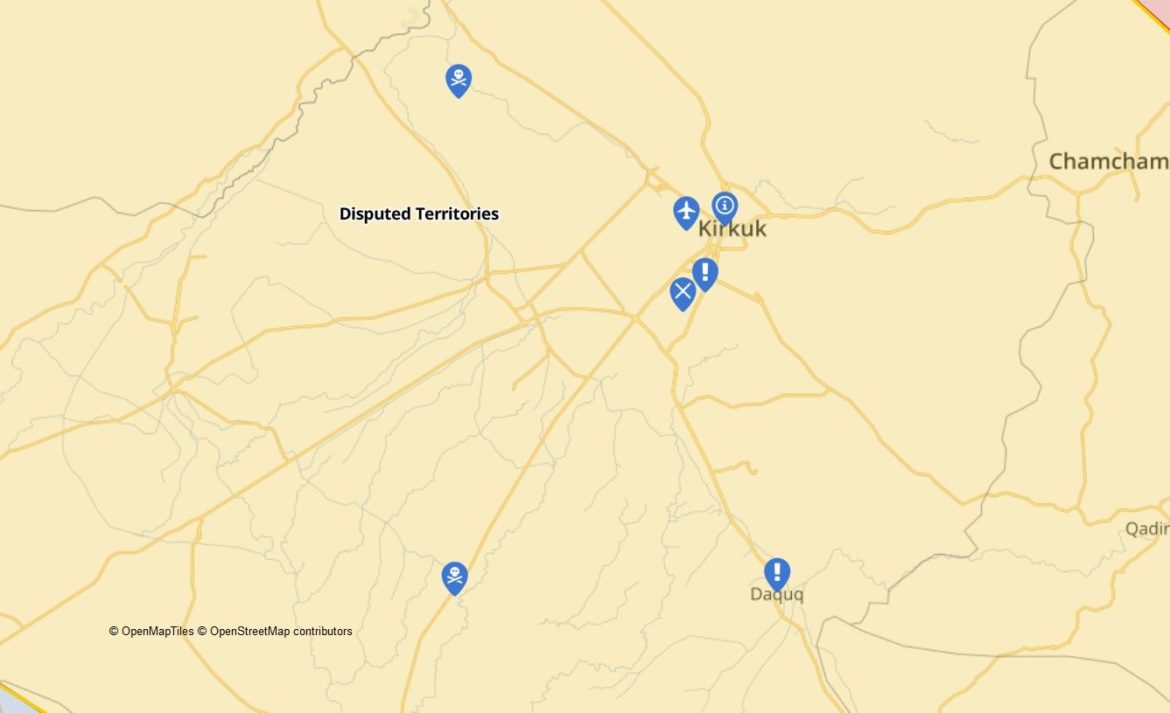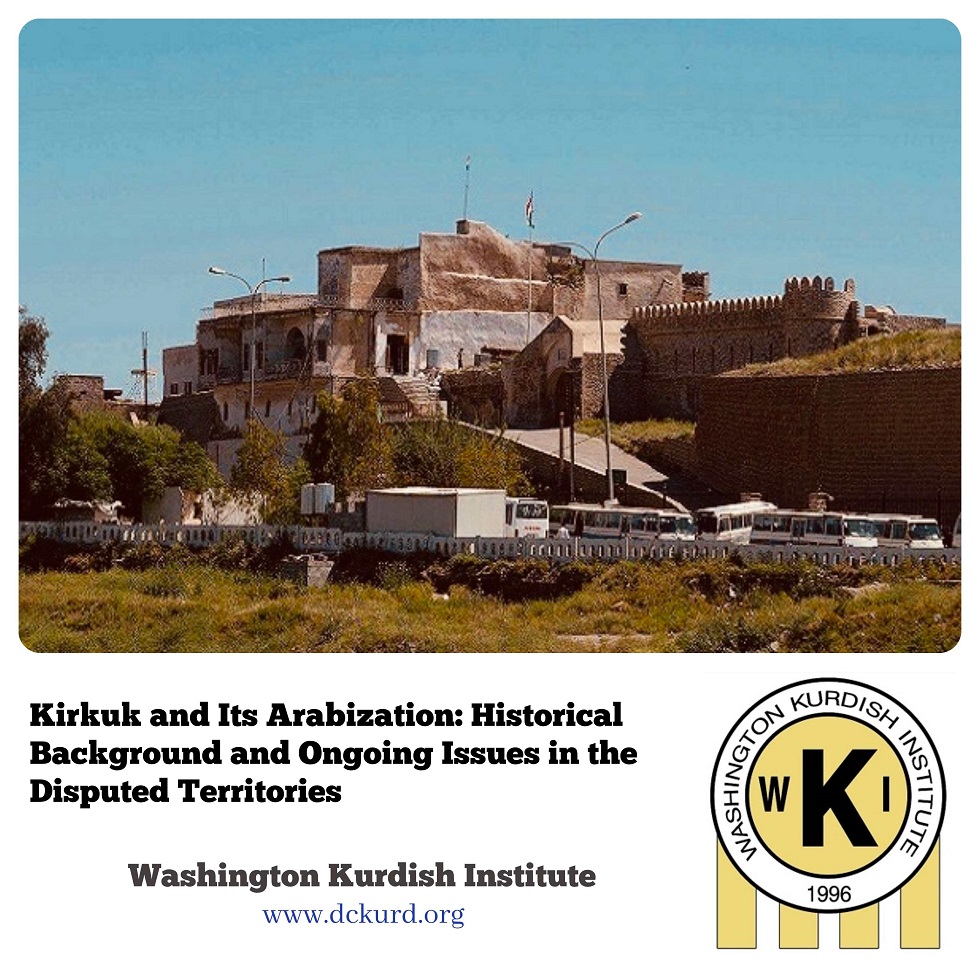1.1K
Kirkuk
- On June 13th, ISIS (Da’esh) terrorists kidnapped a shepherd near the Mansour village of Daquq district. The terrorists attacked four shepherds, but three of them were able to flee. The terrorist organization has been using kidnappings of shepherds and workers in remote areas to generate income as most of them are released with tens of thousands of dollars ransom.
- According to a report by Kirkuk Now, a senior Da’esh terrorist was arrested by the security forces and admitted to executing 17 Peshmeergas captured in 2016. The terrorists also revealed the location of the mass grave of the Peshmergas west of Kirkuk, in the Hawja district. However, according to the director of Kurdistan’s Martyrs’ Department, Khalil Rahim, the terrorist’s confusion is not “legally relied upon” to determine if the mass grave belongs to the detained Peshmergas, and excavation and DNA test need to occur before conclusions. Several Kurdish activists called to expedite the process. Families and relatives of the missing Peshmergas rejected the news reports and said the mass grave is of the 400 civilians killed by the terror group on a different occasion.
- According to the director of the Agriculture Department, Zuhair Ali, local farmers have delivered 150,000 tons of wheat to them, expecting 30,000 more tons. Ali said that 45% of farmlands had not been farmed due to the droughts, and most of the year’s grain production depended on well waters. Some farmers reject selling their crops to the government due to lower prices and delayed payments.
- Oil Products Distribution Company kept its operations unchanged despite Kirkuk’s “High-Security Commission” ‘s decision to increase gas station working hours and determine the prices. The state-owned company released a statement on its Telegram account and said the decisions by commissions “deepened the crisis, not solving it.” However, after hours they removed the statement.
Khanaqin
- On June 11th, Da’esh IED killed a farmer and wounded another in a village near Jalawla (Golala). The victims’ families blamed the Iraqi security forces for noting taking measures despite increased terror activities in the region. Separately, the director of the Agriculture Department in Khanaqin, Kamaran Abdullah, revealed that 70% of farmers refuse to sell their crops to the government, and they “do not trust the government” for on-time payments. Abdullah said the Iraqi government buys a ton of wheat at 850,000 dinars ($560) this year. However, farmers can sell to the market at 950,000 dinars ($630).
Makhmour
- On June 14th, a joint Iraqi counter-terrorism force and the anti-Da’esh US-led Coalition team, supported by warplanes, launched an attack on the depths of Mount Qara Chokh near Makhmour. The operation began at 4 am and continued until the evening of the same day. Meanwhile, the Iraqi army has been besieging the mountain for two months, intending to attack it. Neither the coalition nor Iraq released any information after the operation. The area has remained a Da’esh hub since Baghdad removed the Kurdish forces on October 16th, 2017.
Shingal (Sinjar)
- On June 15th, Turkish drones struck the self-administration branches in Snuny district, killing four people, including a child, and wounding five others. The identities of the victims have not been revealed. The Turkish airstrikes were a few feet away from Iraq’s National Security Office in the town. Locals repeated calls for all armed groups to relocate outside of residential areas. “UNICEF is shocked at the killing of a 12-year-old boy in an attack in the Sinjar area in Ninewa Governorate, ” Read United Nations International Children’s Emergency Fund. Meanwhile, a delegation composed of 19 people, mainly youth, representing protests returned from Baghdad without achievements. In a press conference, Saeed Dakhil, a member of the Sinjar youth delegation, said:” The primary purpose of the visit was to convey the demands of protestors about the situation in the district [Shingal], but only some promises have been given to them.” Dakhil said they have “not yet” ended their demonstrations. The protests sparked after weeks of clashes between the Iraqi army and the Shingal Resistance Units (YBS), an offshoot of the Kurdistan Workers’ Party (PKK). On June 14th, the Iraqi government decided about one million US dollars to “support security” in Shingal. Tens of thousands of Yazidis have remained displaced since 2014, and the region’s instability prevents their return.


